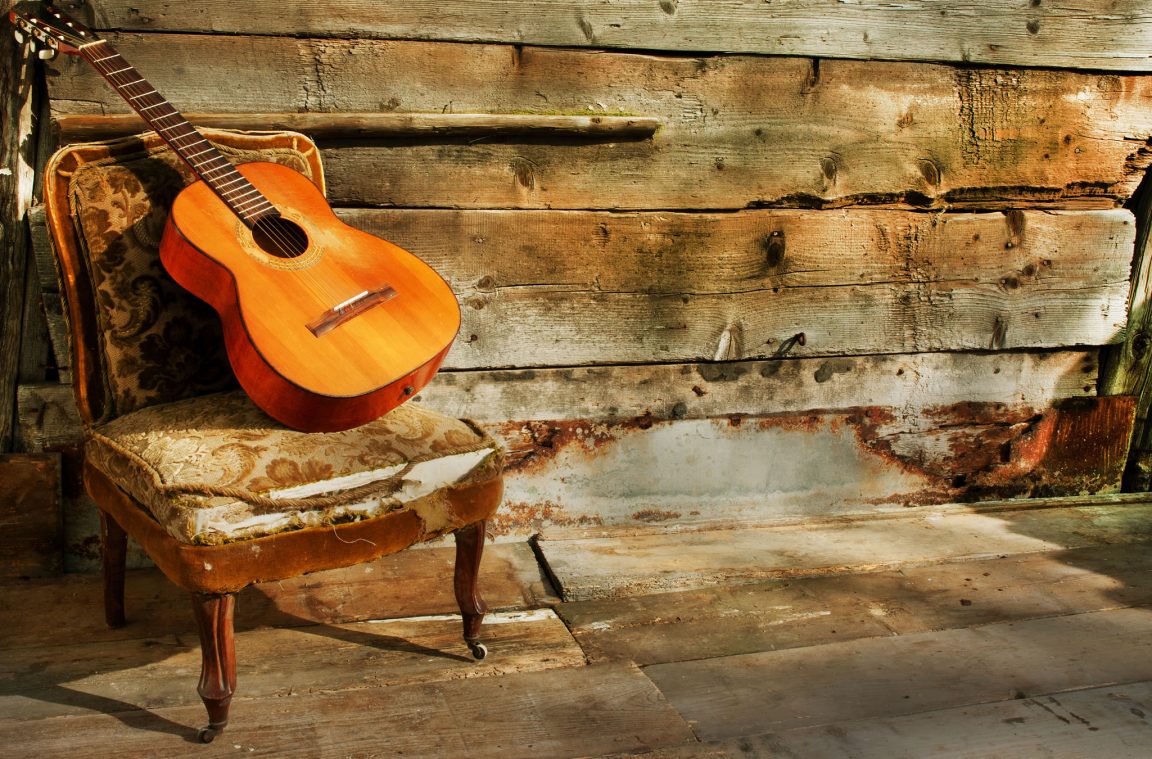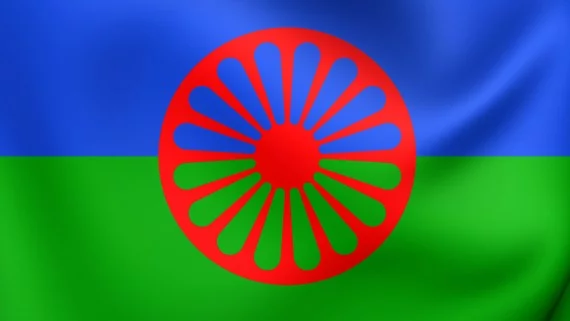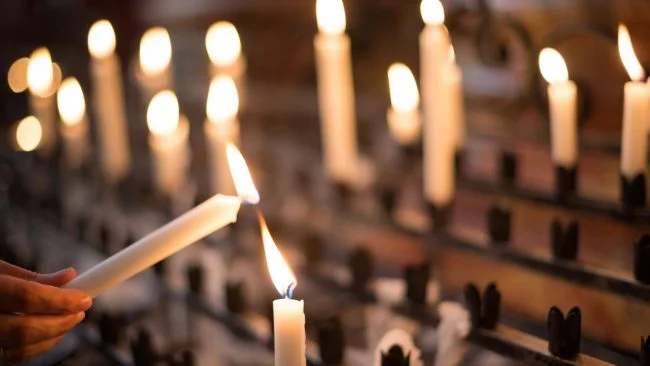The set of customs of the gypsy people has been changing historically. There are numerous differences regarding the uses and customs of the gypsies of Spain with respect to those of other European or South American countries, although there are some characteristics in common that we detail below.
Below you have an index with all the points that we are going to deal with in this article.
Article Index
- 1.
- 2.
- 3.
- 4.
- 5.
- 6.
- 7.
- 8.
Gypsy law
When speaking of "power" in the gypsy people, it refers to the power that a family of this race has, which will be greater the more male children it has. This custom is based on the history of the gypsy people, according to which the greater the number of men, the better a family could defend itself.
However, the men of a gypsy family may be strong, but they must also earn the respect of others over time, something that can only be achieved through strict compliance of the gypsy law.
Roma norms are oral, which means that they do not appear in any type of worship book or written code of law. The normal thing is that the elders or patriarchs preside over the gypsy law, so this regulation may vary according to each family and the beliefs of their patriarch. Even so, in general, the following acts are considered by Roma as unforgivable crimes:
- Theft, deception or accusation from gypsy to gypsy.
- Abandonment of the family in difficult moments.
- Invasion of the boundaries of an "opposite" family.
- Breach of laws imposed by a council of elders.
It should be noted that, as it is an oral law, the limits between what differentiates the (mandatory) law from the practices of use (usually carried out, but not mandatory) of the Roma people are often blurred and easily confused, which often leads to disputes even within the same family.
Breaking the gypsy law usually results in the imposition of some type of sanction that will depend on the seriousness of the crime. The usual sanctions can range from physical aggression to the express prohibition of stepping on a certain territory. The most serious sanction would be expulsion from the family group to which it belongs, known as "exile."
Core values
Gypsies have always had characteristic identity traits and a partially nomadic lifestyle in the sense that, despite living with a certain society, they have never set aside their customs and main values.
Gypsies have a iron identity, which is why they behave differently depending on whether they deal with strangers or relatives. While the former are usually given someone else's treatment as happens in Spain with the use of the term payo to refer to those who are not gypsies, when it comes to relatives, the other must be defended if he or she has been offended for whatever reason. Thus, its main values are:
- The family as the supreme institution
- Children and the elderly enjoy the highest respect and consideration
- Caring for children and the elderly
- Being hospitable is an obligation that should be expressed with pleasure
- The fulfillment of the word given and, above all, the gypsy law
- Freedom as a natural condition of the individual
- Solidarity between members of the same ethnic group
- Compliance with the decisions of the elders if they are part of Roma law
If there is any type of conflict between gypsies, those who must decide the final destination of said dispute will be the gypsies of respect or guys from the area, who will form a Council of Elders to discuss what should be done and finally take a measure that ends the conflict. The decision of the gypsies of respect will be based, above all, on the values listed above and must be beneficial to both parties, who must accept it whatever it is.
Petition, wedding and marriage
A gypsy couple who decide to get married has to go through two phases: first, the petition, and then the wedding itself. The request is the request for a hand to the gypsy girl and begins with the applause or request for a hand, something that takes place between the couple. If everything goes as expected, the approval must be made official and communicated to the family through the petition.
Once announced to the entire group, the wedding will be organized, something that will depend on the financial means of the families involved. However, weddings are the main social ceremony celebrated in the gypsy community, so they are usually carried out in a big way. Gypsy weddings take place by the evangelist or Catholic rite in the morning. In addition, according to gypsy tradition, both members of the couple must arrive virgins at marriage, something that is known as purity.
However, the most macho gypsy communities consider that men have the freedom to choose whether they want to preserve their purity until marriage or not, so whatever their personal choice, it will be respected. This does not apply in the case of women, who cannot marry if they are not a virgin, unless an unmarried man wants to "get together" with her, as the gypsy tradition says.
The woman's virginity is so important to the gypsy community that the call is made to her on the wedding day handkerchief test. This act, which is carried out by a woman who receives the name of ajuntaora, consists of introducing a handkerchief to the bride in her vagina to check if the handkerchief is stained or not with blood (the so-called "three roses"). If she stains, then there is no doubt that she is a virgin and therefore can be married.
In the test of the handkerchief, in addition to the "ajuntaora", several women invited to the wedding act as witnesses. The scarf used is usually half a meter long, is white and is decorated with roses and an embroidered strip. Carrying out this test is a service that is previously contracted and can cost up to 600 euros, including the price of the handkerchief. This act demonstrates the legitimacy of marriage and is celebrated by singing the famous dawn.
International Day of the Gypsy People
Since 1971, on April 8 of each year the International Day of the Gypsy People is celebrated to commemorate the celebration of the First International Congress of the Gypsy People, which took place in London that same year. It is one of the most important days of the year for the gypsy community because at this congress some fundamental questions were agreed, such as those detailed below:
- Flag of the Gypsy People: The gypsy flag is actually an adaptation of the flag of India, given the origin of the gypsy people. It is divided into two horizontal stripes, one blue and one green, with a red wheel in the center, which symbolizes the desire for freedom beyond the imposed borders. It is the hallmark of the Roma community throughout the planet.
- International Gypsy Anthem or gelem gelem: the title literally means "I walked" and refers to the itinerant condition of the gypsy people. It is written in the Roman language and, among other aspects, deals with the genocide and persecution suffered by the Gypsy people by German troops during the Second World War.
- Romano as the official language: the establishment of Romano as the official language of the gypsy people on a world scale meant the normalization of their alphabet and grammar. There are various dialects around the world, such as the "caló" spread in Spain.
This day is celebrated by calling River Ceremony and it is a great opportunity for gypsies around the world to remember and understand the history of the Rome, as well as their culture and language. In it, gypsies from all over the world gather on the banks of rivers to celebrate this day with a flower offering in which women throw flower petals into the water as a symbol of freedom and in representation of the exodus of the gypsy people. several centuries.
folklore
Music is undoubtedly one of the strong points of folklore within the gypsy community. Although in gypsy music you can hear sounds that are largely reminiscent of India and countries such as Turkey, Iran and Greece, among others, without a doubt the most popular style has been flamenco, especially in Andalusia (Spain) .
Declared Intangible Heritage of Humanity by UNESCO in 2010, the Flemish It is today the hallmark of numerous groups and communities around the world, especially the gypsy people, for whom it is not only a musical style, but an element that has played a crucial role in their evolution.
Gypsies are linked to music from a very young age, since its presence is constant and almost daily in gypsy families. In fact, it is common for gypsies to learn first to sing the first flamenco bars and later to speak. In short, the gypsy people have made a great contribution to Spanish flamenco. Examples of this are singers of the stature of Ketama, Azúcar Moreno, Antonio Flores, Camarón, Paco de Lucía, Navajita Plateá and a long etcetera.
In the countries of Eastern Europe, flamenco ceases to play an essential role among gypsies in favor of the so-called gypsy music, commonly called Hungarian music for its special fame among the gypsies of Hungary and some neighboring regions. It is a type of music characterized by its exoticism and instrumental variety, as can be seen in the following video:
Respect for the deceased
Death is another of the fundamental pillars in the life of a gypsy and, therefore, the pain of the individual is one of the most respected events in the community. When a family member or close friend dies, gypsies often wear black for up to 12 months as a way of expressing their grief. In addition, when crossing paths with the affected gypsy, gestures of respect such as turning off the music or television or stopping singing and dancing should be shown.
In addition to wearing black, the relatives of the deceased must carry out a series of restrictions to comply with the mourning:
- Do not use soap
- Not shaving
- Do not listen to music or dance
- Not wearing new clothes
- Not attending community parties
- Do not paint
Men must wear a small black ribbon on their shirt during the period of mourning and burn it at the end of it. The duration of this and the rest of the restrictions depends on the relationship between the deceased and the other person, so it can last from a week to a whole year. Also, when visiting the cemetery (act called limoria) candles, fruits, cigarettes, flowers, etc.
Similarly, gypsies show great respect for their deceased, which is why one of the worst insults among them is offending the dead. The death of a gypsy involves a wake of up to 3 days in which a series of traditions are carried out. One of the most common is to place under the coffin the objects that the deceased liked the most, which can range from tobacco to fresh fruits or wine.
It is important to note that the Roma community does not allow autopsies: the gypsy must be buried as he died, including clothing, jewelry and any other object that was with him at the time of death. This is a fundamental norm in the gypsy people that will only vary in case the deceased indicates otherwise in life.
Another deeply rooted custom is to organize the funeral banquet in memory of the deceased gypsy. It takes place 7 days after death and then it is celebrated again at 6 months and again after a year. It is a great feast in which the dishes that the deceased liked the most are cooked, which is why a space is also left on the table reserved for him or her.
It is also very common to make a series of sacred promises that must be fulfilled after death. If these promises are not fulfilled, the individual may be cursed or prokleto in the Roman language, which is why it will be despised and even marginalized by the rest of the community members.
Birth of a son
For gypsies, the arrival of a child in the life of a married couple is one of the most important events in life. The day of birth is lived with immense happiness by the entire family of both parents. In addition, it is important to note that the sex of the first child is always expected to be male, since, as mentioned above, the greater the number of males, the greater power for the family.
In the period of time from the birth to the christening of the child, a very special event takes place consisting of cut baby's first nails by the family member who has the greatest grace for the arts (singing, dancing, playing an instrument or even telling jokes). Therefore, while trimming the child's nails, you must do what you do best, as this will also inherit this "grace."
There is also a birth rite attended by all members of the gypsy community. It consists of a party held at the home of the father or godfather, in which there is no shortage of various liquors and sweets. This ritual serves to reinforce the family ties between the family and the new member. Strengthen social ties through the figure of the godfather, who happens to be called godfather, it is also of utmost importance.
Religion
Gypsies have always been believers and have been strongly linked to the spiritual world, hence the set of beliefs that exist around a unique God, protector and close to their needs. However, the religion of Gypsies varies depending on where they live. Although usually most gypsies confess CatholicsIn some countries there are adherents of the Muslim religion and even Orthodox or Protestant Christians. In recent decades, there has been a trend toward evangelical faith.
Gypsies whose origin is in Western Europe (France, Spain, Portugal ...) show a clear preference for the majority of the Catholic Church, but also for the Evangelical Church of Philadelphia. On the other hand, the religion of preference of the gypsies from Eastern Europe (Albania, Bulgaria, Hungary, Poland, Romania…) is the Orthodox Catholic Church.
Likewise, ethics and religion are closely linked in gypsy culture, which is why a magical-taboo behavior reigns in them in which the superstition plays a very important role, and even on some occasions his way of acting over the religious influence. It is the reason why they believe in the evil eye, omens, curses and divination, as well as in the special and particular powers that exist in certain people.
Since the God of the Gypsies is an entity made to measure and manufactured according to their interests, the Gypsy believes that he is only committing sin when he violates the rights of his race. Gypsies believe that they offend their God when they break any of the rules imposed by Gypsy law, such as lacking the sense of union or not helping other Gypsies.
This article has been shared 898 times. We have spent many hours collecting this information. If you liked it, share it, please:










